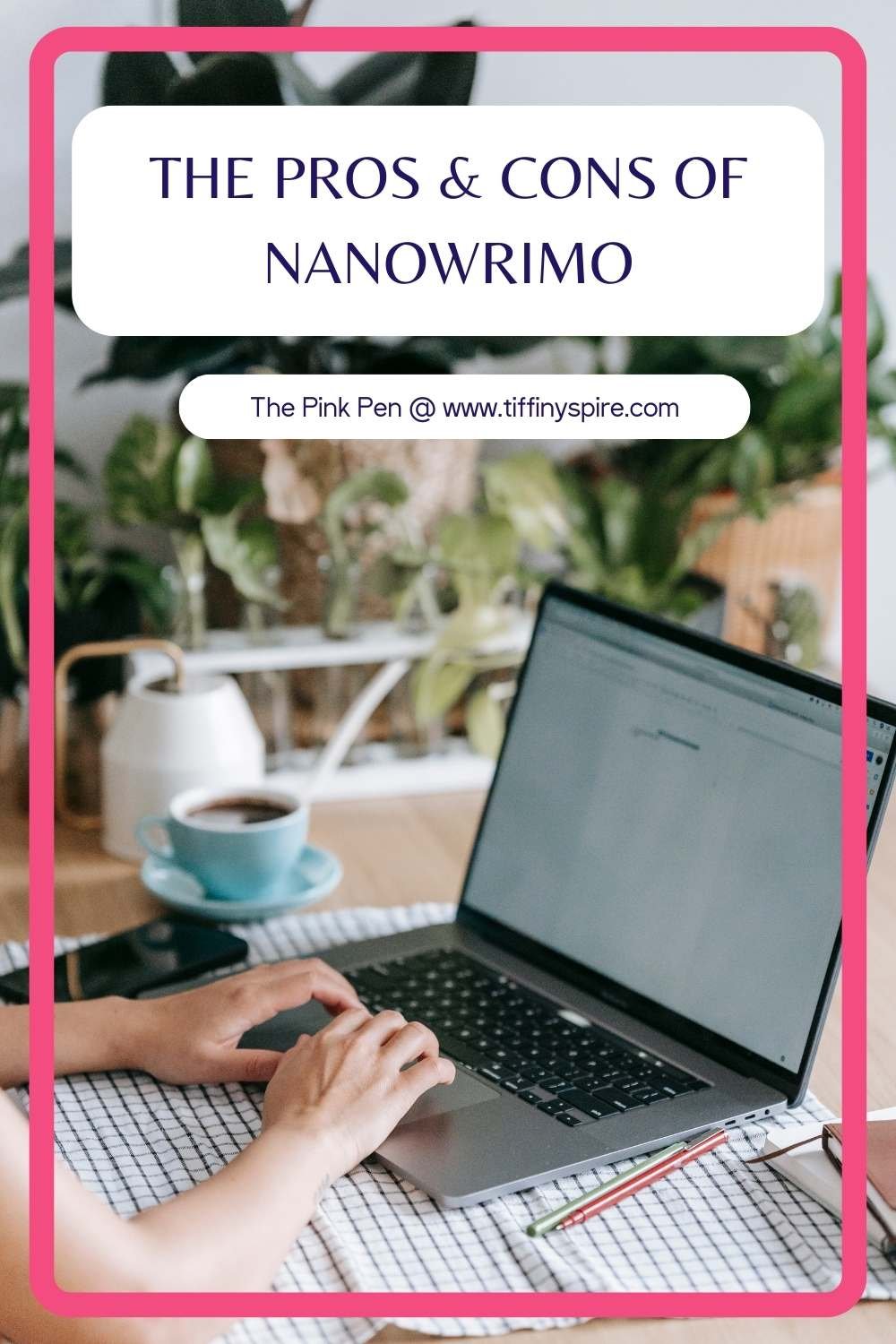The Pros and Cons of Doing NaNoWriMo
Are you like me and trying to decide if you should take on the challenge of National Novel Writing Month (NaNoWriMo)?
Some years I participate, some years I don’t. This year, as November rolled around, I thought I would put together a list of pros and cons to help with making that decision. It is a big commitment, after all. You have to write over 2,000 words a day (each day of November) in order to meet the 50,000 word count requirement to win.
This post contains affiliate links. As an Amazon affiliate, I earn a small commission on purchases made through these links at no extra cost to you.
So, in no particular order here are some advantages and disadvantages of taking on the challenge of NaNoWriMo.
Pros:
· It provides more motivation to write when normally you might do other things with your time. (This challenge has forced me to write in the evenings even though I usually only write in the mornings because of my natural energy levels.)
· It can create a sense of community with fellow writers. Hashtags for NaNo abound online, and it’s not difficult to find camaraderie with others who have undertaken this massive project.
· It can leave you with a feeling of accomplishment no matter if you actually “win.” If you know in advance you’re not aiming to “win” the 50,000 word count, then you’re in the right mindset to count any final word count as a personal win. (This has been my strategy each time I’ve participated. I’m a realist with limited writing time, so I have to participate in NaNoWriMo in a way that works for me.)
· It forces you to focus on one writing project. I don’t know if you’re like me, jumping from project to project working on whichever I’m in the mood for at the moment. This makes for very slow progress on any one piece. Whereas, a month of dedicated writing time on one novel, will create a lot of progress on that one manuscript.
Cons:
· If you’ve got any perfectionist tendencies, and you don’t win NaNoWriMo, you may end the month of November feeling like a failure. For some people, this is enough to block their writing progress for a good while.
· A month of writing such a large daily word count (when you’re not used to that) can easily lead to writer burnout. Another thing that can keep writers from making useful, continuous progress on their work over the long term.
· You might be left with a pile of crap. (Pardon the language.) You’re probably familiar with Anne Lamont’s famous words, “shitty first draft” from her book Bird by Bird. (If not, please get your hands on a copy immediately.) She points out that a terrible first draft is to be expected. But, unless you preplan and start the month with an excellent outline, the speed at which you have to make plot decisions in order to keep writing and maintain your word count can lead to some really bad plot decisions. Editing that mess can turn into a nightmare…or worse, a complete rewrite. In which case, did you really win?
· It can make you ugly. Okay, not in the physical sense, but if you’re the competitive kind of person who takes a deadline to heart—even an artificial one—then NaNoWriMo might not be right for you. Are you going to turn into a monster growling and grumbling (or worse) at the people around you because you’re struggling to make your daily word count? If the better part of your day is committed to others (kids, spouse, the boss…), you might suddenly see them as getting in the way of your word count. Can you handle that gracefully?
So what’s it going to be? To NaNo or not to NaNo?
As I said earlier, some years I participate (and greatly enjoy the challenge). Other years, I sit it out. As I’ve been writing this post, I’ve come to realize (admit to myself) that my fall is just too packed already to add in daily writing sprints. So, this year, I will skip the challenge. Here’s hoping that next year, I’ll be ready to take it on, and maybe even win, for once.
Happy Writing!

